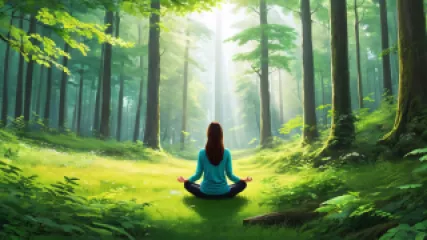Finding Peace: My Journey to Reduce Environmental Anxiety
Finding Peace: My Journey to Reduce Environmental Anxiety
Introduction:
Environmental anxiety is a growing concern in today's world. As we become more aware of the impact of climate change and environmental degradation, it's natural to experience feelings of fear, stress, and helplessness. The constant barrage of news about melting ice caps, deforestation, and species extinction can take a toll on our mental well-being. However, finding ways to manage and reduce environmental anxiety is crucial for our own peace of mind and for taking positive action towards a sustainable future.
Body:
1. Recognizing Environmental Anxiety:
My journey to reduce environmental anxiety began with acknowledging its existence. I realized that I was not alone in feeling overwhelmed by the state of the planet and the uncertain future it held. It was important for me to understand that my anxiety was a valid response to the environmental challenges we face.
Once I recognized that my anxiety was rooted in genuine concern for the environment, it became easier to address it. I learned to differentiate between productive worry and debilitating anxiety. Productive worry prompts us to take action, whereas debilitating anxiety paralyzes us and prevents us from making a positive impact.
2. Seeking Nature-Based Therapy:
One of the most transformative steps I took on my journey was seeking nature-based therapy. Nature has a profound healing effect on our mental and emotional well-being. Spending time in nature helps reduce stress, improve mood, and increase resilience.
During my therapy sessions, I engaged in activities like forest bathing, where I immersed myself in the sights, sounds, and smells of the natural environment. I also participated in eco-therapy groups, which involved gardening, hiking, and practicing mindfulness in nature. These experiences helped me develop a deeper connection with the natural world and provided a sense of solace and peace.
3. Counseling for Climate-Related Anxiety:
Alongside nature-based therapy, I sought counseling specifically tailored to address climate-related anxiety. Working with a therapist who understood the unique challenges of environmental anxiety was immensely helpful. Through counseling, I gained valuable coping mechanisms and strategies to navigate my fears and anxieties.
Counseling sessions allowed me to explore my emotions, fears, and hopes for the future in a safe and supportive environment. It helped me develop a greater understanding of the intersections between mental health and environmental well-being. Additionally, my therapist provided guidance on how to channel my anxiety into positive action, such as joining local environmental organizations or advocating for policy changes.
4. Connecting with Like-Minded Individuals:
Feeling isolated in our worries can exacerbate environmental anxiety. Connecting with like-minded individuals who share similar concerns can be incredibly empowering. I actively sought out communities and support groups that focused on climate change and environmental activism.
Engaging in discussions and sharing experiences with others who were also grappling with environmental anxiety provided a sense of validation and camaraderie. Together, we explored ways to cope with our anxieties and brainstormed actionable solutions. These connections strengthened my resolve to make a difference and reminded me that I was not alone in my journey.
5. Taking Action:
Reducing environmental anxiety isn't just about managing our own stress levels; it's also about taking tangible steps towards a more sustainable future. By actively engaging in environmental initiatives, we can transform our anxiety into motivation for positive change.
I started by making small changes in my daily life, such as reducing plastic consumption, conserving energy, and supporting local businesses. These actions not only reduced my personal ecological footprint but also provided a sense of empowerment and purpose.
Additionally, I joined local environmental organizations and participated in community projects aimed at addressing environmental challenges. By lending my voice and skills to these initiatives, I felt a renewed sense of hope and optimism. Taking action not only alleviated my anxiety but also inspired others to join the movement for a greener and more sustainable world.
Summary:
Reducing environmental anxiety is a journey that requires self-reflection, support, and action. By recognizing the validity of our concerns, seeking nature-based therapy, finding counseling tailored to climate-related anxiety, connecting with like-minded individuals, and taking tangible steps towards sustainability, we can find peace amidst the chaos.
Remember, it's okay to feel anxious about the environment - it shows that you care. But by channeling that anxiety into positive action, we can create a better future for ourselves and the planet. Let's embark on this journey together and find solace in our collective efforts to address environmental concerns through therapy.






